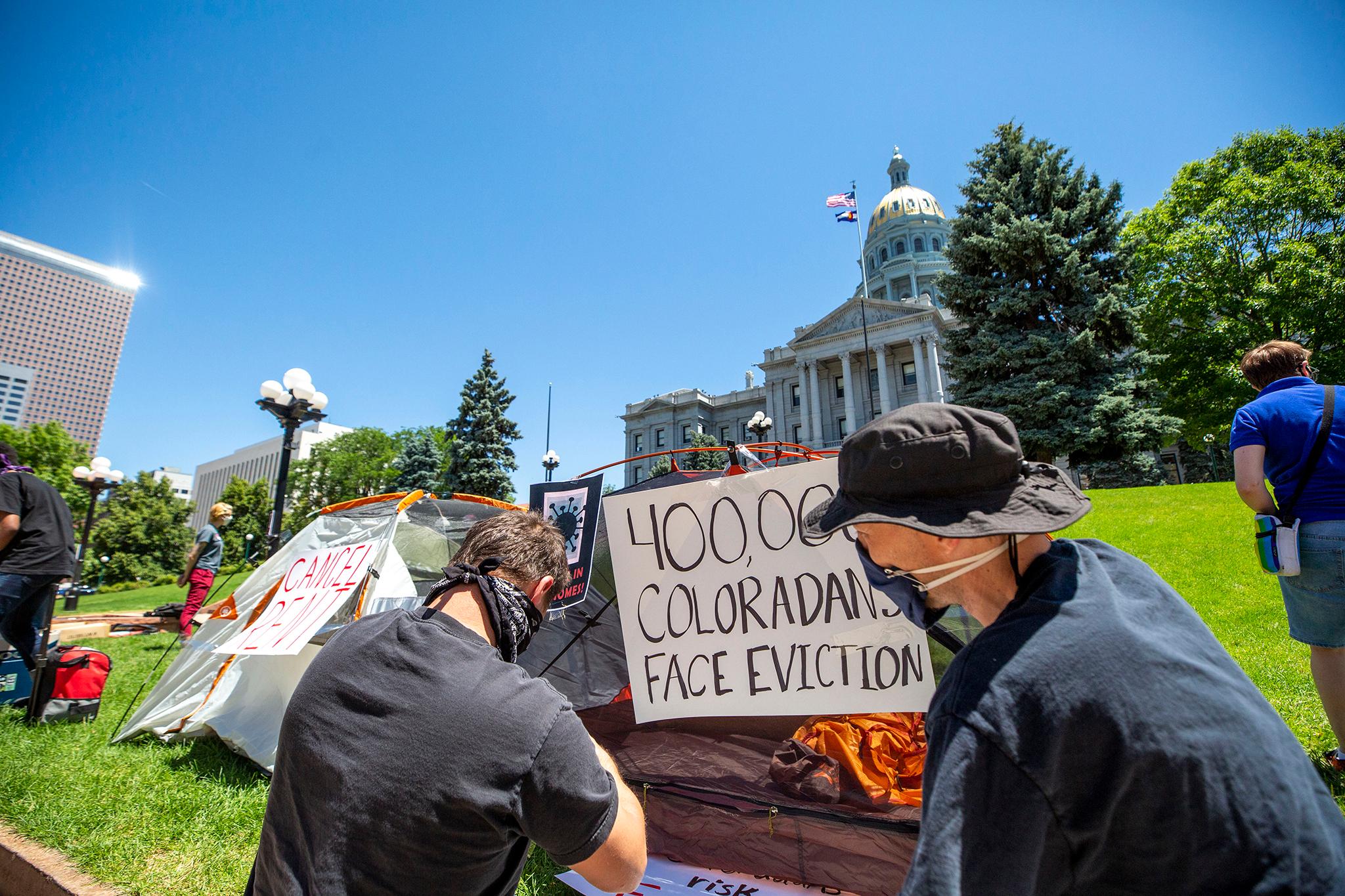
Updated 1:25 p.m.
Gov. Jared Polis has ordered another temporary statewide moratorium on some evictions, expanding on the local effects of a federal moratorium issued by the Centers for Disease Control and Prevention in September.
The new order, dated Oct. 21, 2020, is set to expire after 30 days. The move is part of Colorado’s effort to address “housing instability challenges” during the coronavirus pandemic and is intended to help renters affected by things like layoffs, business closures and medical bills because of COVID-19.
“We must take additional steps to provide relief to Colorado renters and small businesses,” Polis said in a statement.
Under the existing CDC order, landlords were forbidden from removing tenants who couldn't pay rent due to COVID-19 hardships.
Polis' new order adds more protections for renters. For example, it says that landlords cannot evict tenants whose leases have expired, assuming they face hardship.
It also prohibits landlords from starting court proceedings in cases of financial hardship. Until now, landlords in Colorado have been allowed to initiative eviction cases in many courts, leaving judges to decide them on a case-by-case basis. That allowed eviction cases to pile up even after the CDC order. In some cases, tenants lost by default because they failed to show up to court.
The order also bans landlords from carrying out evictions that were already granted by a judge, if the tenant demonstrates financial hardship.
"This is good. It’s going to keep many people in their homes as we head into the winter. It closes key loopholes in the CDC moratorium that landlords were exploiting to get people out," said Javier Mabrey, a lawyer who volunteers to help tenants with the Colorado-based COVID-19 Eviction Defense Project.
"But tenants have to be aware of their rights under this. Tenants have to go through and follow the steps that are outlined in the executive order in order to be protected," Mabrey added.
The state government will create a form that tenants can sign to invoke the protections of the eviction ban. They will have to affirm that they are making "best efforts" to pay their rent and that they've been financially hurt by the pandemic. The protections are only for people who make $99,000 or less — or $198,000 for a couple filing a joint tax return.
Drew Hamrick, general counsel for the Colorado Apartment Association, said the order was based on faulty legal arguments. It's unclear, he said, what a landlord should do if a tenant appears to be lying about their situation.
"You can’t even go to court. That’s frankly the biggest legal problem," he said. The government "can’t tell people that they can’t take their disputes to court. That's a First Amendment right."
The association is considering legal action, though they're "not trying to sue our state government," Hamrick said. "That’s not productive in a lot of ways, but we’re getting painted into a corner on this."
Mabrey said that tenants who lie on the forms are committing the crime of perjury. Landlords could try to wrangle with those cases, he said, but it's important that the courts not accept eviction filings.
"Otherwise, every single landlord would take every single tenant into court to test that, and I think that’s contrary to the intent of the order," he said.
A spokesperson for the court system did not immediately respond to a question about how judges would handle the new order.
The change was expected and comes nearly a week after Polis suspended late rent fees until 2021. A task force launched by the state in August recently recommended that the governor issue an order limiting evictions.
The order met early praise from progressives and housing advocates who have pushed for months for a statewide ban. Polis briefly ordered such a ban earlier in the pandemic but allowed it to lapse in June.
As state and federal protections expired over the summer, eviction activity began to pick up. Despite the CDC ban, September saw the highest number of eviction filings of the pandemic.
The latest housing measure follows the governor’s warning that Colorado is entering a dangerous wave of COVID-19 cases and hospitalizations.









